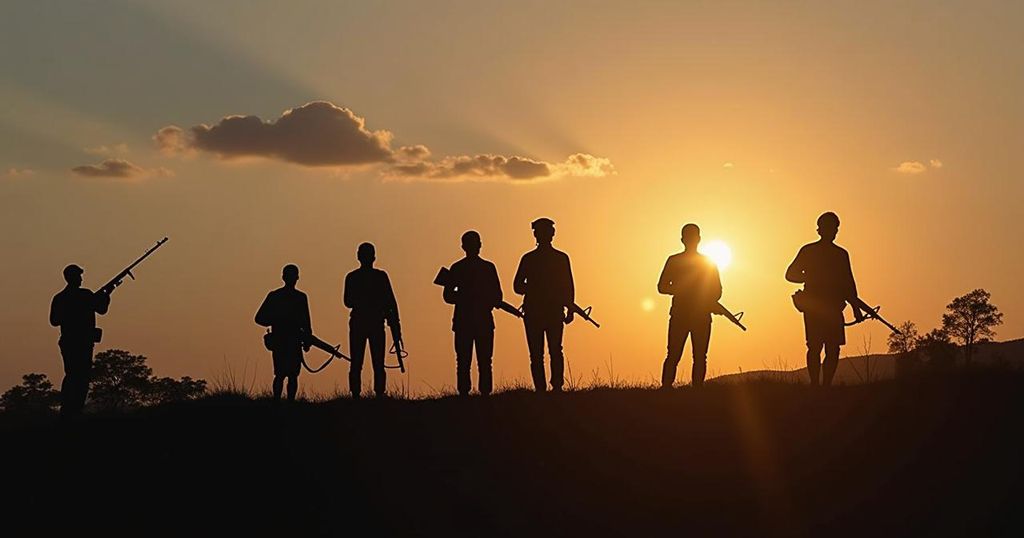The UN Security Council has unanimously extended the Kenya-led Multinational Security Support mission in Haiti for another year. The U.S. has withdrawn its proposal to convert the mission into a UN peacekeeping operation due to opposition from China and Russia. The mission faces significant personnel shortages, with only 407 of the planned 2,500 deployed, and a funding shortfall impacting its operational capacity amidst ongoing gang violence in Haiti.
On Monday, the United Nations Security Council unanimously approved the extension of the Kenya-led Multinational Security Support (MSS) mission in Haiti for another year. This decision comes in response to ongoing security challenges in the nation, particularly issues related to gang violence and instability. The original mandate was set to expire on October 2, 2024, but with this extension, the mission will continue its efforts to assist the Haitian National Police (PNH) in restoring order and combating organized crime. Notably, the United States withdrew its proposal to transition the MSS into a full UN peacekeeping operation, a plan that faced significant opposition from both China and Russia. U.S. Ambassador to the UN, Ms. Linda Thomas-Greenfield, stated, “Today’s unanimous renewal sends a strong message to the people of Haiti: the world stands with you.” In spite of this endorsement, the mission currently faces critical challenges, including a stark shortage of personnel, as only approximately 407 out of the intended 2,500 military and police members have been deployed. Furthermore, the MSS grapples with severe funding limitations; the established UN trust fund has raised a mere $67 million of the $84 million target, in light of an expected total operational cost of around $600 million annually. International contributions have been varied, with Canada pledging $45 million, the United States committing $15 million, and other nations contributing smaller sums. Despite these donations, UN Secretary-General António Guterres expressed frustration over the slow pace of financial support for the mission. The situation in Haiti remains dire, with gangs holding sway over significant areas of Port-au-Prince, impeding progress toward security and order, including control of vital infrastructure. Several nations have pledged additional troop contributions in light of ongoing personnel shortages. For example, Guatemala aims to deploy 150 soldiers, while Guinea has offered 650 police officers. Nevertheless, specifics regarding deployment timelines remain unclear. Amid these developments, the idea of converting the MSS into a UN mission was seen as a path toward securing more stable funding and resources, yet fell through when China and Russia signaled potential vetoes against such a resolution.
The Kenya-led Multinational Security Support mission in Haiti arose from urgent needs to address deteriorating security conditions in the country, exacerbated by widespread gang violence and a lack of effective policing. Past international missions in Haiti, particularly the UN Stabilisation Mission (MINUSTAH), have left a mixed legacy, with severe repercussions such as a choleral outbreak and allegations of malfeasance by peacekeeping forces. The ineffectiveness and controversies surrounding previous missions have led to hesitance among the Haitian populace regarding new international interventions, underscoring the need for transparent accountability measures for any forthcoming support initiatives. The current MSS is seen as a critical but underfunded effort amid calls for greater international cooperation and responsibility towards Haiti’s stabilization.
In summary, the extension of the Kenya-led MSS mission in Haiti marks an important commitment by the international community to support the country amid ongoing security threats. With the United States retracting plans to transform the mission into a UN peacekeeping operation, significant challenges regarding personnel shortages and funding remain. As new international contributions materialize, the efficacy of the MSS in assisting the Haitian National Police and curbing gang violence will be watched closely, while discussions regarding the future structure of international support and accountability for past abuses continue to shape the context of this mission.
Original Source: haitiantimes.com






